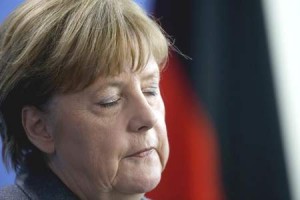Al Jazeera
Ali Seraj
- The opening of trade routes would encourage Central Asian nations to cooperate as economic stakeholders and not rivals
 The Afghan government negotiators and a number of Taliban representatives are scheduled to sit across the negotiation table in Islamabad on Monday. Although an immediate agreement on peace is unlikely to be achieved, the meeting is considered to be a positive event after a bloody year and frostier than ever relations between Afghanistan and Pakistan.
The Afghan government negotiators and a number of Taliban representatives are scheduled to sit across the negotiation table in Islamabad on Monday. Although an immediate agreement on peace is unlikely to be achieved, the meeting is considered to be a positive event after a bloody year and frostier than ever relations between Afghanistan and Pakistan.
The increasing rate of terror attacks in both Afghanistan and Pakistan poses a significant threat to both nations and risks spilling over into neighbouring countries. To prevent wider regional instability, action must be taken now. The solution lies in fostering political, economic and social cooperation between Afghanistan and Pakistan. This cooperation must be based on mutual trust, respect and understanding.
The cure for the troubled relations between the two country lies in their history. To achieve a mutually supportive commitment to face up to the security challenges, it is necessary to foment the political determination for resolving past differences and creating new narratives.
At root, the most viable solution to the Central Asian security issue lies in ensuring significantly improved employment opportunities as the foundation to greater shared financial security.
Where the general population feels direct benefits from improved conditions, it generates a sense of stake-holder ownership which ensures stability and a desire for continued improvement of the situation.
There are two major points of contention that are keeping Pakistan from reaching an agreement of non-intervention with Afghanistan: the enduring dispute over the Durand Line, and its conflict with India.
Durand Line
Concluded between Sir Mortimer Durand and Amir Abdur Rahman Khan in 1893, the Durand Line Agreement delineated the spheres of influence of the Afghan government and the British Raj. It was, in effect, considered as a defence line between the two. The line was never meant to create a permanent border and by British law, had a 90-year validity.
When Pakistan was created in 1947, the British violated the treaty and assigned the Afghan territory laying on the east side of the Durand Line to Pakistan. Afghanistan protested and presented its case to the League of Nations, but was outvoted and the line was accepted as a border between Afghanistan and Pakistan.
To this day, every Afghan government, since the creation of Pakistan, has never accepted the line and considered the area to be part of the Afghan Pashtun tribal area and referred to it as Pashtunistan.
This led to several border skirmishes between the two nations in the second half of the 20th century.
Competition with India
Pakistan considers India as its main enemy in the region and has grave concerns about the close relationship between Afghanistan and India.
The Pakistani military believes that that relationship could open up a second front against Pakistan in the event of war. So, as part of what is referred to as “strategic depth” doctrine, Pakistan has been attempting to have influence over any government elected in Afghanistan.
In short, Pakistan’s perceived security fears have continued to withhold its military establishment from genuinely seeking a peaceful solution, even though President Ashraf Ghani has made several attempts to extend a hand of friendship to Pakistan.
With such a high degree of distrust between the two neighbours, it appears that short of Afghanistan forfeiting its sovereignty to Pakistan, the ISI, Pakistan’s spy agency, will not be satisfied with a political agreement. The purely security-oriented solution, therefore, will continue to face a deadlock.
With the entire region now at a critical point, I believe that an alternative solution must be put on the table. That is achieving mutual confidence and mutual benefits through a regional economic scheme
The Afghan president and other regional leaders have initiated a few regional economic cooperation plans. TAPI, the 1,814km Turkmenistan-Afghanistan-Pakistan-India gas pipeline is one such initiative. But, there is a need for a greater and more comprehensive regional economic grouping.
The fast track to ensuring the right foundation is the creation of a Six by Six common market system embracing the region’s six Islamic nations: Pakistan, Iran, Uzbekistan, Tajikistan, Turkmenistan and Afghanistan.
A Common Market System
Within this winning alliance, Afghanistan would be a Free Trade Zone, reviving the Silk Route, through which all of its neighbours would benefit from the resulting trade traffic.
The region should have soft borders and the railroad system from the neighbouring five nations should be extended into Afghanistan. To help trade opportunities, the populous living within this economic zone would be allowed to cross borders with agreed travel documents.
A Central Asian Common Market would open the road to trade and commerce not only within the member countries, but for all of Asia and Europe.
It would create jobs in the tens of thousands. All goods heading East, West, North and South would be warehoused in Afghanistan and then shipped via rail, road or air to their respective destinations.
Furthermore, it would reduce tensions between the West, Russia and China as they would be working together to ensure the security of the six Common Market Nations.
With soft borders, tensions over the Durand Line between Afghanistan and Pakistan would reduce considerably and eventually become a non-issue. With direct economic benefits to all of the six nations and the attention of bigger regional states to ensure trade security, terrorists would no longer have support within any member nation and so they will fade away.
The TAPI pipeline from Turkmenistan to Pakistan can be built without the destructive actions of the Taliban. So will the electric power lines from Tajikistan to Pakistan.
The opening of trade routes and financial benefits to be reaped would allow Pakistan and India to cooperate as economic stakeholders and not rivals. For the United States and NATO states, the billions of dollars that is now being spent on war, could be diverted towards maintaining peace. Moreover, supporting a Central Asian Nations’ Common Market will eventually generate economic and security self-sufficiency, which will gradually reduce the flow of the American and European taxpayers’ money to Afghanistan and Pakistan.
The current political stalemate and parallel increase in insecurity will not disappear just by continuing to insist on the same old, tried and failed formulas.
A comprehensive regional common market such as the Six by Six concept, wholeheartedly supported by the international community, is a scheme worth trying. The time is right and ripe. Such a move would set a positive example for other nations suffering from war.




